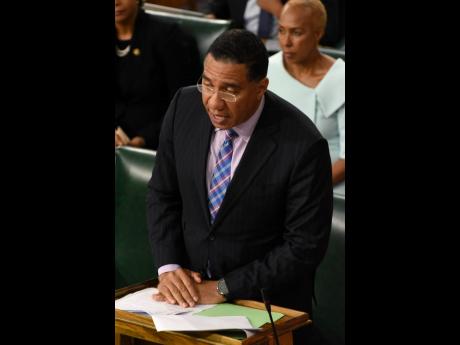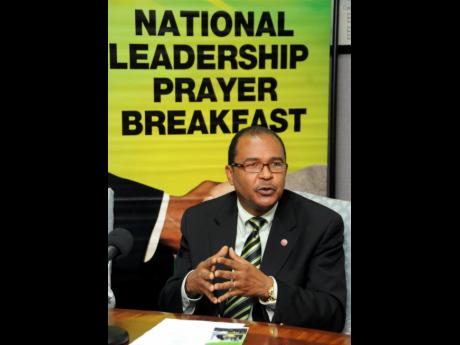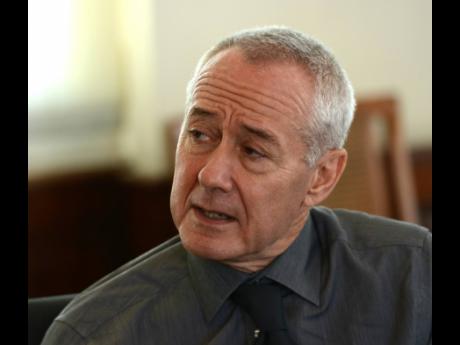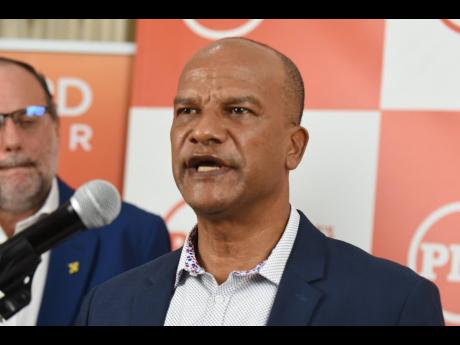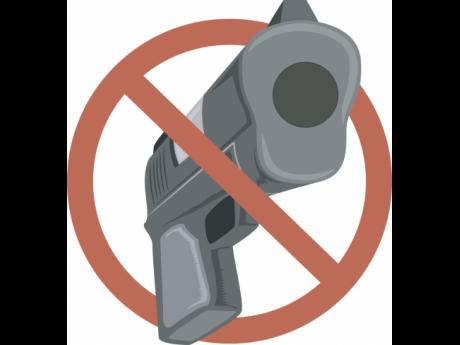BLANK SHOTS
Community leader, others wary of effectiveness of gun amnesty
The widening gap between the haves and the have-nots is just one of the reasons armed thugs will turn their backs on a pending gun amnesty, a St Andrew community leader has cautioned. Another critical issue, he said, is that it is “impossible” for...
The widening gap between the haves and the have-nots is just one of the reasons armed thugs will turn their backs on a pending gun amnesty, a St Andrew community leader has cautioned.
Another critical issue, he said, is that it is “impossible” for regular citizens, primarily those in inner-city communities, to entrust their safety and protection to the police, noting that “them don’t trust the police”.
He requested that his name and community remain anonymous.
“You think you can have a gun amnesty in a society where there is such a wide disparity between the haves and the have-nots and think you a go get a dip in the crime rate or the murder rate?” the community leader questioned during a Sunday Gleaner interview on Thursday.
“This gun amnesty nah go no weh.”
The latest amnesty, which was announced by Prime Minister Andrew Holness last Wednesday, will give owners of illegal firearms a chance to turn them in without criminal prosecution before a new gun law with tougher penalties comes into effect.
Jamaica recorded nearly 28,000 murders in the last two decades, more than 80 per cent of which involved the use of a gun, police data show.
According to the statistics, 1,089 of those killings occurred between January 1 and last Tuesday, a 7.2 per cent increase year-on-year.
The new Firearm Act, which is expected to clear its last hurdle in the Senate this week, provides a minimum 15-year prison sentence for persons caught with an illegal firearm.
“And because we have increased the penalties significantly, the Government of Jamaica, for a very short time, will implement a period of amnesty,” Holness declared last week.
He acknowledged sceptics like the St Andrew community leader who “scoffed” at the amnesty and questioned “which bad man going to go give up dem gun?”
“Well, really enuh, I don’t want you to give it up, I want to catch you with it. So don’t give it up,” the prime minister said.
Some 621 guns – including rifles, shotguns and pistols – were handed over to the police during a 21-day amnesty that was implemented in 1972 by then Prime Minister Michael Manley, according to a report published in The Gleaner on March 25 that year.
A Gleaner report before that, revealed that there was an amnesty in 1967 that netted 450 illegal guns and 1,228 assorted bullets.
Since then, there have been talks by the various administrations to implement other gun amnesties, but they have not materialised. However, over the years a number of initiatives have been employed to get illegal firearms off the streets.
‘A LAST CHANCE’
Manley’s People’s National Party, which now forms the parliamentary Opposition, last week sidestepped questions from The Sunday Gleaner about whether it will support the looming amnesty and some of the things it believes should be included.
“It is difficult to comment in an informed way on a gun amnesty in an abstract sense without knowing the specific terms of the amnesty,” said Senator Peter Bunting, Opposition spokesman on national security.
Professor Anthony Clayton, a noted academic, believes that while amnesties “don’t usually have much effect” on the rate of homicides, the impending period of clemency could be different.
“For the first time Jamaica will have real gun laws with serious penalties attached. This gun amnesty might be more effective mainly because this represents a last chance to avoid a 15-year prison sentence,” said Clayton, the Alcan Professor of Caribbean Sustainable Development at The University of the West Indies.
He conceded, however, that while the provisions of the new gun law will make some gang members nervous, they are “unlikely to affect hardcore killers”.
“The major challenge will be to reach past the shottas to take down the people who finance and organise the shipments of illegal weapons, launder money and protect the criminals involved,” Clayton suggested.
But charging that the country’s two main high-security prisons lack effective rehabilitation programmes, the St Andrew community leader warned that locking away people convicted of gun-related crimes will have dire long-term consequences.
“Just prison without rehabilitation? The prisons have become like a recycled shop for criminals,” he shared.
“This is a gun amnesty weh a deal wid just penalties, and the amendments to the Firearms Act is fi send man a prison, two old prisons weh just mek people bitter and come out more vicious.”
There is no indication when the amnesty will be implemented.
Holness said Dr Horace Chang, his national security minister, and the Parliament will hammer out the details of how it will work.
GET THE CHURCH INVOLVED
Reverend Dr Peter Garth, a respected cleric, believes there must be a key supporting role for the Church in any proposed gun amnesty, noting that the protocols and strict adherence to them are critical.
It is commonplace for accused persons to turn to members of the clergy for help to broker their surrender to the police.
Convicted Jamaican drug lord Christopher ‘Dudus’ Coke famously sought the assistance of popular pastor the Reverend Merrick ‘Al’ Miller for help to surrender to the authorities a month after the 2010 Tivoli Gardens incursion that resulted in the deaths of some 69 civilians and a soldier.
Garth, a former chairman of the Jamaica Umbrella Group of Churches, believes this trust factor will help to give members of the clergy “access” to volatile communities during an amnesty.
“They do have some amount of trust and confidence in us … and we can help to convince them to do so,” he said about getting citizens to take advantage of the looming clemency.
Since 2019, authorities in New York in the United States have taken 2,700 illegal firearms off the streets through several gun buy-back events, the Attorney General’s Office has disclosed.
Gun amnesties or gun buy-back events are best hosted by a church, which can provide a “safe space”, and with supporting resources from the government, Brooklyn, New York-based pastor and anti-gun violence advocate Gilmore Monrose has suggested.
Further, he said trust and transparency must be at the foundation of any such initiative.
“It has to be transparent that the people who turn in the guns will not be arrested and they will not be investigated,” Monrose said.
“If that is not laid down, then you are not going to have a situation where individuals are going to feel confident enough to turn in their illegal guns.”

